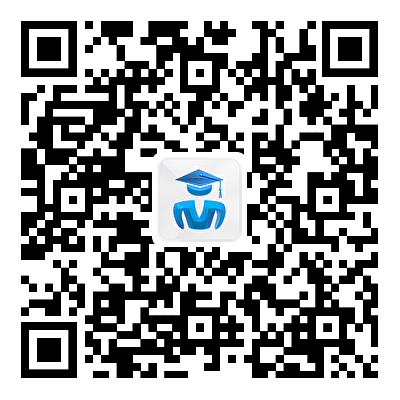This job opening is advertised to fill a temporarily vacant position during the absence of the regular incumbent for a period of one year or longer. The regular incumbent is entitled to return to this position at the expiry of the temporary vacancy period. If the regular incumbent exercises the right to return, the appointment or temporary assignment of the candidate selected for this job opening will not be renewed or extended.
The selection process for this job opening will be conducted pursuant to ST/AI/2010/3 on the “Staff Selection System” and include the compliance review process by a review body described in staff rule 4.15. In case of selection, a staff member of the United Nations Secretariat who meets the definition of “internal candidate” in staff rule 4.10 will be placed on a temporary assignment if he or she holds the same grade as the job opening; and a temporary assignment with special post allowance if he or she holds a lower grade than the job opening. If the regular incumbent vacates the position during such temporary assignment, the selected staff member will be laterally assigned, or transferred to the position without further selection process under ST/AI/2010/3.
Pursuant to section 7.11 of ST/AI/2012/2/Rev.1, candidates recruited through the young professionals programme who have not served for a minimum of two years in the position of their initial assignment are not eligible to apply to this position.
This position is located in the Codification Division of the Office of Legal Affairs (OLA). The Legal Officer reports to the Director of the Codification Division and a Principal Legal Officer.
Within delegated authority, the Legal Officer will be responsible for the following duties:
•Services or assists senior colleagues in servicing diplomatic conferences, commissions, committees, expert groups and other bodies, including preparation of background materials, summaries of issues and views of delegations, meeting reports, etc.
•Prepares or assists with the preparation of international law training programmes and facilitate them.
•Handles a range of issues related to constitutional, international, public, administrative, and criminal (substantive, procedural and comparative) law, including the interpretation and application of constitutive, legislative and other instruments governing United Nations activities and operations, in consultation with senior Legal Officers.
•Conducts extensive legal research and analysis and prepares studies, comparative studies, briefs, reports and correspondence, as requested by the General Assembly and its subsidiary organs.
•Undertakes basic or extensive review of legal documents, instruments, or other material; identifies important issues, similarities, and inconsistencies, etc.
•Prepares or assists in the preparation of drafts of background papers, studies, reports, legislative texts and commentaries on those texts, legal publications and teaching materials in the field of international law.
•Prepares or assists in the preparation of legal opinions/advice on a wide range of international public law issues, including the United Nations Charter, General Assembly resolutions and decisions involving, inter alia, institutional questions, treaty law and practice, and procedural issues arising during meetings of United Nations organs.
•Prepares or assists in the preparation of agreements with governments and other entities.
•Administers programmes of legal technical assistance.
•Provides guidance to more junior staff.
•Performs other duties as assigned.
•PROFESSIONALISM: Knowledge of, and ability to apply, legal principles, concepts and procedures and terminology for review, examination, and processing of a range of legal documents. Knowledge of various legal research sources, including electronic, and ability to conduct research and analyze information on a wide range of legal issues. Knowledge of the civil law and/or common law legal systems and principles. Ability to interpret and apply legislative instruments, develop and present results, recommendations, and opinions clearly and concisely. Ability to draft legal papers and work under pressure. Ability to apply good legal judgment in the context of assignments given. Shows pride in work and in achievements; demonstrates professional competence and mastery of subject matter; is conscientious and efficient in meeting commitments, observing deadlines and achieving results; is motivated by professional rather than personal concerns; shows persistence when faced with difficult problems or challenges; remains calm in stressful situations. Takes responsibility for incorporating gender perspectives and ensuring the equal participation of women and men in all areas of work.
•TEAMWORK: Works collaboratively with colleagues to achieve organizational goals; solicits input by genuinely valuing others' ideas and expertise; is willing to learn from others; places team agenda before personal agenda; supports and acts in accordance with final group decision, even when such decisions may not entirely reflect own position; shares credit for team accomplishments and accepts joint responsibility for team shortcomings.
•PLANNING AND ORGANIZING: Develops clear goals that are consistent with agreed strategies; identifies priority activities and assignments; adjusts priorities as required; allocates appropriate amount of time and resources for completing work; foresees risks and allows for contingencies when planning; monitors and adjusts plans and actions as necessary; uses time efficiently.
Advanced university degree (Master’s degree or equivalent) in international law. A first-level university degree in combination with qualifying experience may be accepted in lieu of the advanced university degree.
A minimum of five years of progressively responsible experience in law, including legal
analysis, research and writing is required.
Experience in public international law at the national or international level is required.
Experience in drafting international law background papers with emphasis on the progressive
development of international law and its codification is desirable.
Experience with an international organization is desirable. Experience in organizing
international law training courses or seminars is desirable.
Experience in publishing articles on topics of public international law is desirable.
Qualifying years of experience are calculated following the receipt of the university degree in
law recognized by the United Nations.
English and French are the working languages of the United Nations Secretariat. For the post advertised, fluency in English is required. Knowledge of French is desirable. Knowledge of another official United Nations language is desirable.
Evaluation of qualified candidates may include an assessment exercise which may be followed by competency-based interview.
According to article 101, paragraph 3, of the Charter of the United Nations, the paramount consideration in the employment of the staff is the necessity of securing the highest standards of efficiency, competence, and integrity. Candidates will not be considered for employment with the United Nations if they have committed violations of international human rights law, violations of international humanitarian law, sexual exploitation, sexual abuse, or sexual harassment, or if there are reasonable grounds to believe that they have been involved in the commission of any of these acts. The term “sexual exploitation” means any actual or attempted abuse of a position of vulnerability, differential power, or trust, for sexual purposes, including, but not limited to, profiting monetarily, socially or politically from the sexual exploitation of another. The term “sexual abuse” means the actual or threatened physical intrusion of a sexual nature, whether by force or under unequal or coercive conditions. The term “sexual harassment” means any unwelcome conduct of a sexual nature that might reasonably be expected or be perceived to cause offence or humiliation, when such conduct interferes with work, is made a condition of employment or creates an intimidating, hostile or offensive work environment, and when the gravity of the conduct warrants the termination of the perpetrator’s working relationship. Candidates who have committed crimes other than minor traffic offences may not be considered for employment.
Due regard will be paid to the importance of recruiting the staff on as wide a geographical basis as possible. The United Nations places no restrictions on the eligibility of men and women to participate in any capacity and under conditions of equality in its principal and subsidiary organs. The United Nations Secretariat is a non-smoking environment.
Applicants are urged to follow carefully all instructions available in the online recruitment platform, inspira. For more detailed guidance, applicants may refer to the Manual for the Applicant, which can be accessed by clicking on “Manuals” hyper-link on the upper right side of the inspira account-holder homepage.
The evaluation of applicants will be conducted on the basis of the information submitted in the application according to the evaluation criteria of the job opening and the applicable internal legislations of the United Nations including the Charter of the United Nations, resolutions of the General Assembly, the Staff Regulations and Rules, administrative issuances and guidelines. Applicants must provide complete and accurate information pertaining to their personal profile and qualifications according to the instructions provided in inspira to be considered for the current job opening. No amendment, addition, deletion, revision or modification shall be made to applications that have been submitted. Candidates under serious consideration for selection will be subject to reference checks to verify the information provided in the application.
Job openings advertised on the Careers Portal will be removed at 11:59 p.m. (New York time) on the deadline date.
APP-IOS

扫码下载留信网®APP(IOS)
小程序

留信网®小程序入口